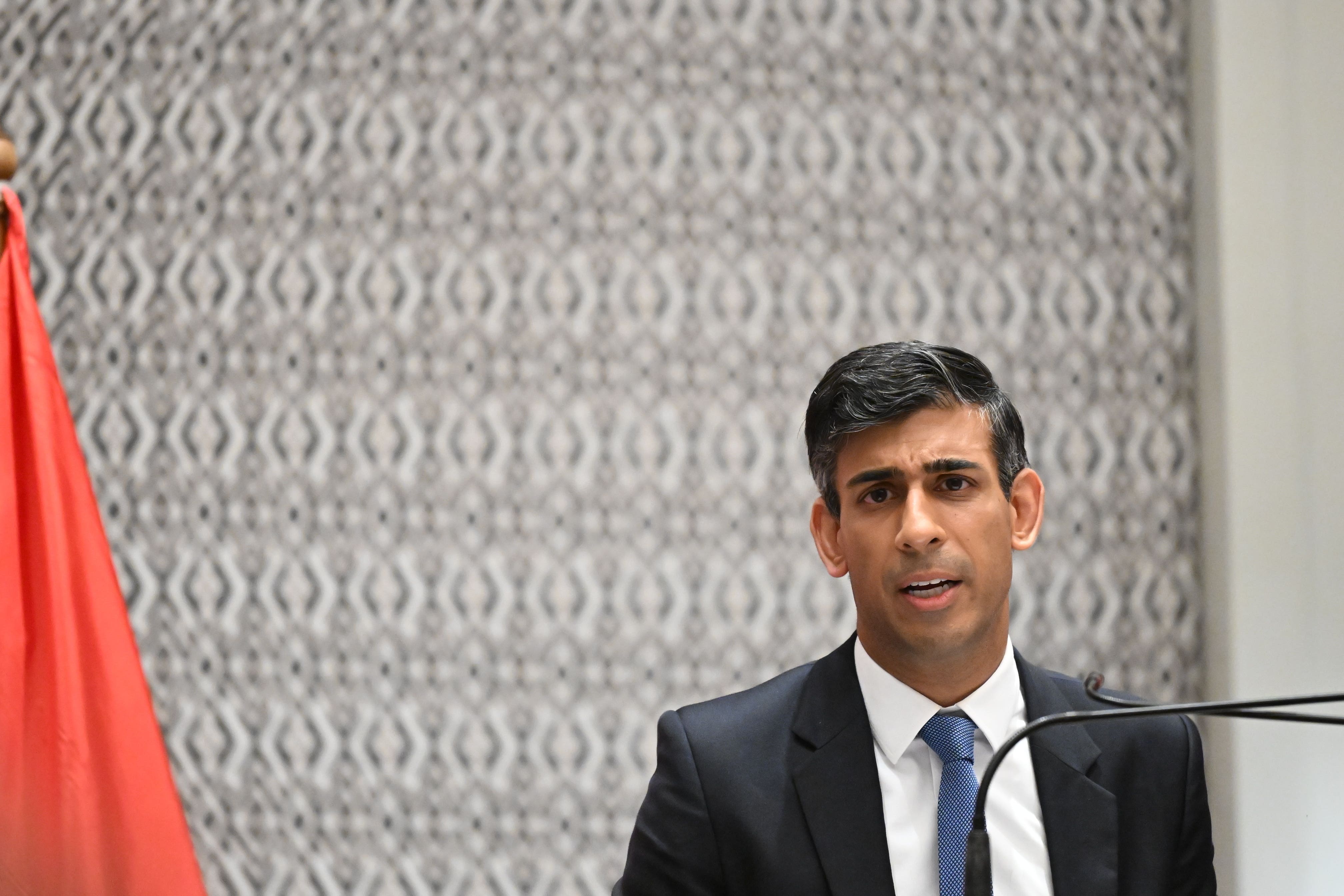Sunak says more criminals should be jailed as part of crackdown on crime
The Prime Minister said his daughter wanting to walk to school by herself brought home the danger women and girls face.

Your support helps us to tell the story
From reproductive rights to climate change to Big Tech, The Independent is on the ground when the story is developing. Whether it's investigating the financials of Elon Musk's pro-Trump PAC or producing our latest documentary, 'The A Word', which shines a light on the American women fighting for reproductive rights, we know how important it is to parse out the facts from the messaging.
At such a critical moment in US history, we need reporters on the ground. Your donation allows us to keep sending journalists to speak to both sides of the story.
The Independent is trusted by Americans across the entire political spectrum. And unlike many other quality news outlets, we choose not to lock Americans out of our reporting and analysis with paywalls. We believe quality journalism should be available to everyone, paid for by those who can afford it.
Your support makes all the difference.Rishi Sunak has said he wants to see more people jailed as part of a crackdown on crime, after he opened up about fearing for his children’s safety.
The Prime Minister said his eldest daughter reaching the age where she wanted to walk to school by herself “brings home” the danger women and girls face.
He vowed to curb crime so that “my kids and everyone else can walk around safely”.
The events of the last year showed us that so many women and girls actually for a while have not felt as safe as they should
The Prime Minister told reporters: “We should charge more people and reduce crime and have them in jail.”
He said he remained “committed” to the Tory manifesto promise to put 20,000 more police officers on the street, and that doing so to reduce neighbourhood crime “is incredibly important to me”.
“If you put more police officers on the street and you tackle more crime, you’re going to end up with more people in jail,” he said, “which is why we’re building 10,000 more prison places over the next few years.”
Asked if he was comfortable with prisoner numbers going up, the Prime Minister said: “Well we’re not very comfortable with it but I’ve made sure that we have the funding in place to have the capacity to do it.”
Combating crime is “personally quite important to me,” Mr Sunak said.
“I come to it as a parent. I have two young girls”.
His eldest wanted to walk to her primary school by herself when she turned 11, he said, adding that this was the reason his family moved out of their Downing Street flat and closer to her school in west London in the spring before he resigned as chancellor.
The Prime Minister said: “That brings it home. It brings it home to you as a parent and again over the summer the awful things that we read about with the young girl Olivia (Pratt-Korbel), which we’ll all remember.
“I want to make sure that my kids and everyone else can walk around safely.
“That’s what any parent wants for their children.
“It’s what anyone wants for their – particularly their wife or their sister as well – because that hasn’t been something that in the past – well in the past I’ve taken it for granted, and many of us as men have.
“The events of the last year showed us that so many women and girls actually for a while have not felt as safe as they should.
“So tackling that and making it safer for people is something that’s just personally quite important to me.”
Mr Sunak said he was spending “a bit of time” on making sure the police have the powers they need to do their job.
He was “very supportive” of the controversial Public Order Bill aimed at tackling “some of the extremist protesting we’ve been seeing”. The Bill, currently going through Parliament, has sparked a furious backlash from campaigners.
Mr Sunak said he viewed reducing crime as “part of levelling up”, as it most impacts people in parts of the country who have felt overlooked or who are from disadvantaged backgrounds.
Asked about life back in Downing Street, the Prime Minister said moving back into the flat they inhabited when he was chancellor – above No 10 rather than the larger one above No 11 – had made the transition “easier than it otherwise might have been”.
He added: “But look, it happened quite suddenly so it was a bit of an adjustment for everybody and as I said I’ve been working pretty much night and day for the last couple of weeks… so I haven’t really had time to stop and think.”
Attending last week’s Festival of Remembrance gave him a rare opportunity to reflect.
“That was a moment where I did for a few seconds actually get to just take in the responsibility that I’ve got in this new job and you know that was a pretty special moment which I won’t forget,” he said.